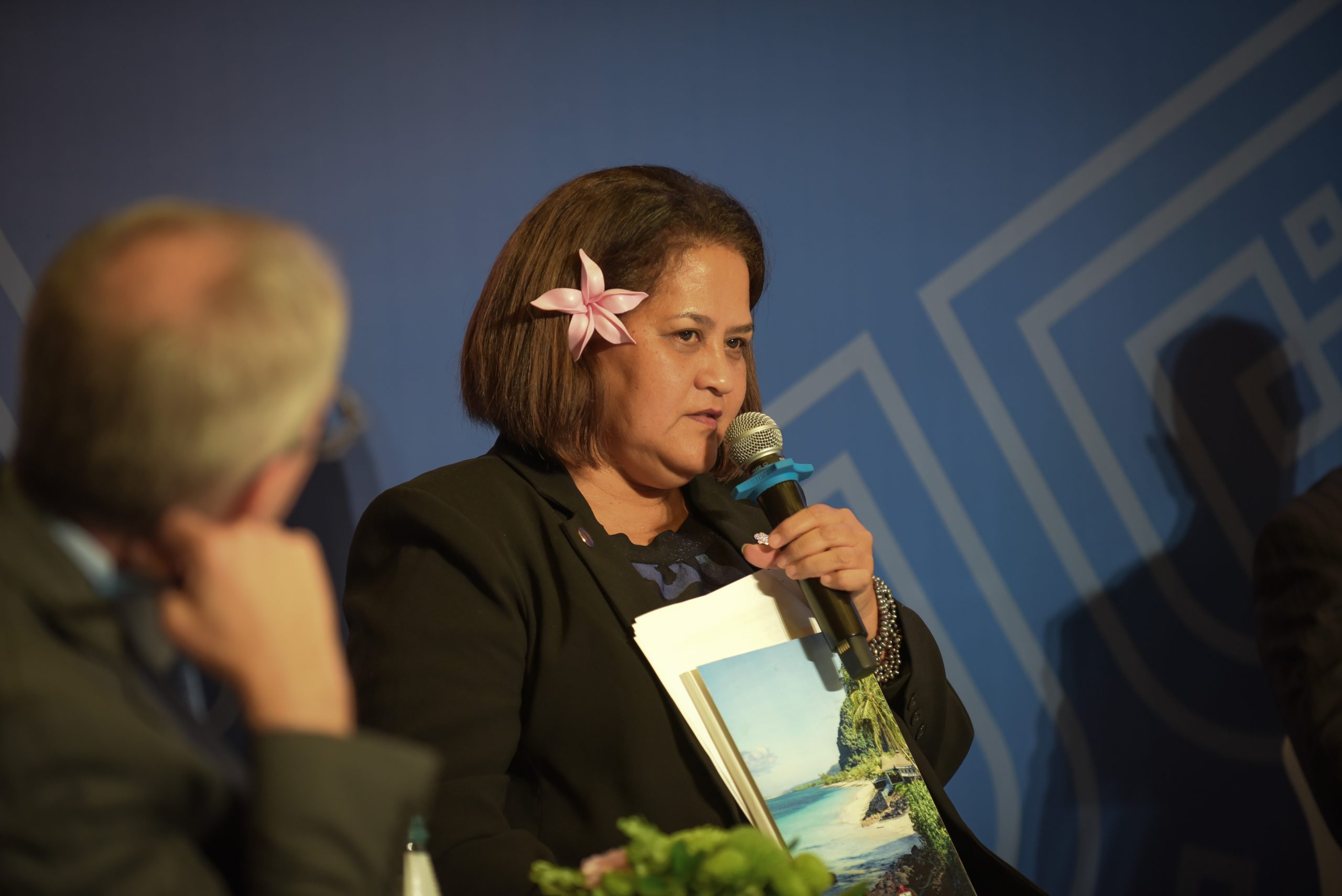Limited capacity in human resources – both in numbers and capabilities is one of the three challenges slowing Samoa’s progress towards meeting its sustainable development goals.
The other two, according to finance chief executive officer, Maeva Betham Vaai, are the impact of climate change and the two health crises in 2019 that forced a set-back on the island nation’s development plans.
In 2019 Samoa was hit with a double health emergency – the measles epidemic and COVID19 in one year.
Vaai, is looking to the Asian Development Bank (ADB) as the Pacific’s multilateral development bank partner to assist Samoa with tailored solutions to address these national set-backs.
“In Samoa, we have to redirect our resources to meet our emergency response. This slowed down our SDG implementation, Vaai told delegates at a side event on the margins of the ADB Annual Meeting in Tbilisi, Georgia.
“The impacts of climate change are manifested in the frequency of disasters in the Pacific – that significantly threaten livelihoods of our people, the infrastructure and our ecosystems. The frequency of these natural disasters impact the implementation of our Sustainable Development Goals (SDGs).
This is worsened by the lack of human resource to analyse and manage data – to ensure government is able to analyse and keep track of development progress.
“For that to happen we need solid data. We need capacity building in data collection and analysis so we can better inform our development policies and actions to accelerate progress. There is definitely data gap as a result of limited capacity.
As ADB positions itself to become the climate bank for the Asia Pacific region, Vaai urged the multilateral bank to ‘deal with flexibilities in procurement and contracting and improve on processing time.”
“ADB can also help us enhance our climate resilience by investing in climate smart infrastructure and strengthen our disaster resilience efforts.
The head of ADB’s Independent Evaluation office, Emmanuel Jimenez noted the feedback from Samoa on procurement evaluation, processing delays and limited capacity.
He said ADB’s new operating model for more field presence in developing member countries can go a long way in addressing the concerns of member countries.
“The ADB is strengthening its field presence and 100 positions will be shifted out of Manila to ensure our people are working closely with our DMCs. This is a step in the right direction, said Jimenez.
Under the ADB’s Pacific Approach, 2021–2025, which serves as the country partnership strategy for Samoa, ADB has committed to address climate change, long term capacity support and increase flexibilities in procurement and contracting.
In response to the dual health crises in 2019 and 2020, ADB provided US$20 million for the Health Expenditure and Livelihoods Support Programme and another US$7.5 million to support vaccine rollout and strengthen health systems. As part of its COVID-19 pandemic response, ADB committed an additional $8 million to the project in 2021.













